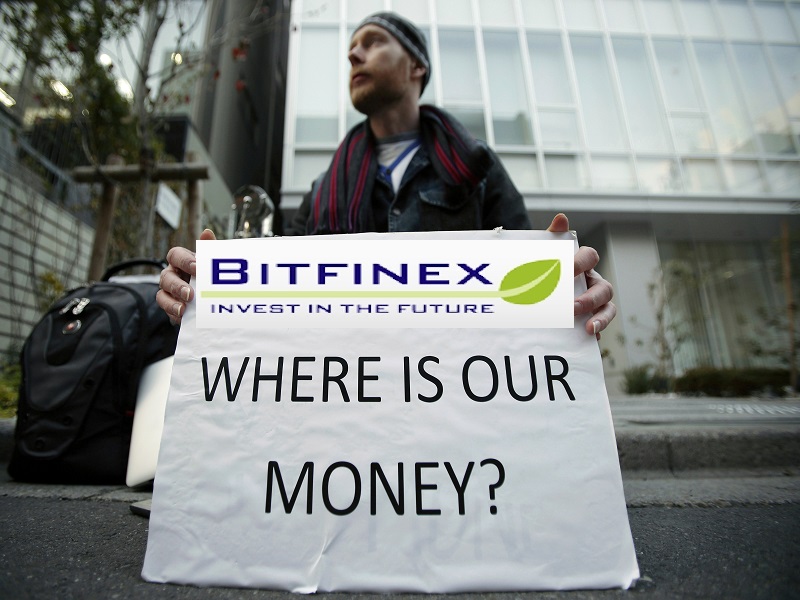One of the biggest problems facing Bitcoin is people’s lack of trust. Despite the security of the blockchain, many continue to believe that Bitcoin is unsafe, attracting criminals and breeding fraud.
Also read: Bitcoin Price Sluggish, But Technical Indicators Still Bullish
Gox and Bitfinex: Coincidence, or Signs of Conspiracy?
The recent Bitfinex hack has done little to change this attitude. In fact, when one looks at the attack, it’s easy to notice similarities between these events and the circumstances surrounding Mt. Gox, the largest bitcoin theft in history (Bitfinex stands as the second largest). This stirs up an eerie feeling, to say the least, and a big question has emerged from the rubble: why does this keep happening?
It seems that every two years or so, Bitcoin gets itself on a roll. Price and popularity rise beyond our expectations, only to be crushed under the weight of criminality. We see the price sink, and people’s investments disappear virtually overnight.
Is there recurring behavior among Bitcoin executives? Are there secret players pulling the strings?
Mt. Gox suggests such ideas. At the end of 2013, bitcoin had surpassed the $1,000 mark, but this was not out of popularity or extensive usage like we originally thought. Instead, as we discovered after the fact, executives were likely toying with the market: manipulating the price and creating the illusion that bitcoin was rising higher than it really was. Once the Japanese exchange was hit, bitcoin dropped like a hot potato.
When looking at Bitfinex, things seem to have taken a similar turn.
Since late last year, Bitcoin has been firing on all cylinders. Following a disappointing 2015, the world’s favorite digital currency left its meandering wake to surpass $300 in November, and things have only escalated from there. Nearly two months ago, Bitcoin hit $750, which led investors to believe that bitcoin was the way to go. Many wondered if $800 — or even $1,000 — stood in bitcoin’s immediate future.
Then, like with Mt. Gox, the hack on Bitfinex has caused the price to take a massive tumble. Bitcoin had already been in a subtle decline, but the hack kicked off a downward spiral that sent the price to the $570 range.
So there’s one point of similarity. Bitcoin is put on a long conveyor belt that sees it moving forward for a steady period, only to be shot down later by something vast and “unforeseen.”
Furthermore, both cases have seen executives implicated in the crimes. In Japan, Mt. Gox chief Mark Karpeles was arrested for his alleged role in the company’s crash that caused nearly half-a-billion dollars in bitcoin to practically disappear into thin air. Karpeles was arrested for purportedly embezzling customer funds, and spent nearly ten months in a Japanese jail awaiting what appeared to be a desolate future. He was released on bail early last month.
While nothing can be confirmed, the idea of a corporate executive being involved in the Bitfinex hack isn’t far-fetched. The company’s elusive CEO Raphael Nicolle has allegedly participated in past Ponzi schemes, some of which he created himself. The hack was also followed by the disappearances of several staff profiles. Analysts now wonder if those in charge may have overseen the hack. While it’s hard to say at this point, the similarities between Bitfinex and Mt. Gox are growing.
As stated before, both events have occurred within two years of each other, and one can’t help but wonder if some strange pattern is taking place in the Bitcoin world. In February 2014, bitcoin rose higher than ever, only to come crashing down. Now in 2016, we’ve witnessed a similar excursion. What’s happening here? Is Bitcoin doomed to regularly face such a fate?
The question is not one of safety as mentioned in the beginning, but one of responsibility. If those in charge are controlling more than they should, they have allowed greed and avarice to dissect their feelings of humanity, which is the ultimate mistake. The people offer bitcoin and related currencies their true power; without the people, bitcoin will fail to keep its stance in the financial world, so serving one’s greed isn’t likely to produce long-lasting results. Only stifling public interest can do this, and would-be hackers and those with malicious intent have regularly failed in this department. Bitcoin has fallen, but it hasn’t died. Trading hasn’t stopped, and demand remains intact despite recent events, which shows that bitcoin is still exercising its muscles.
The truth remains that as long as people see a need for bitcoin, it will continue to ring true, and culprits can always be caught. One may get away for the time being, but eventually, the past catches up. Answers surrounding Mt. Gox are arriving late; nevertheless, they are beginning to appear, and while answers regarding Bitfinex may presently be invisible, it probably won’t be long before they emerge as well.
What mysteries will unravel surrounding the Bitfinex events? Post your thoughts and comments below!
Images courtesy of Bitcoinist.net.
